

By Wu Xilu
Without sensational attacks, flattened homes and media drumbeat of desperate people dying, the COVID-19 pandemic, as the deadliest event in U.S. history, caused the largest scale of loss, but in a rather invisible and painless way.
Here’s some perspective.
DEADLIEST DISEASE OUTBREAK
The one-million death toll from COVID-19 has made the pandemic the deadliest disease outbreak in the U.S.
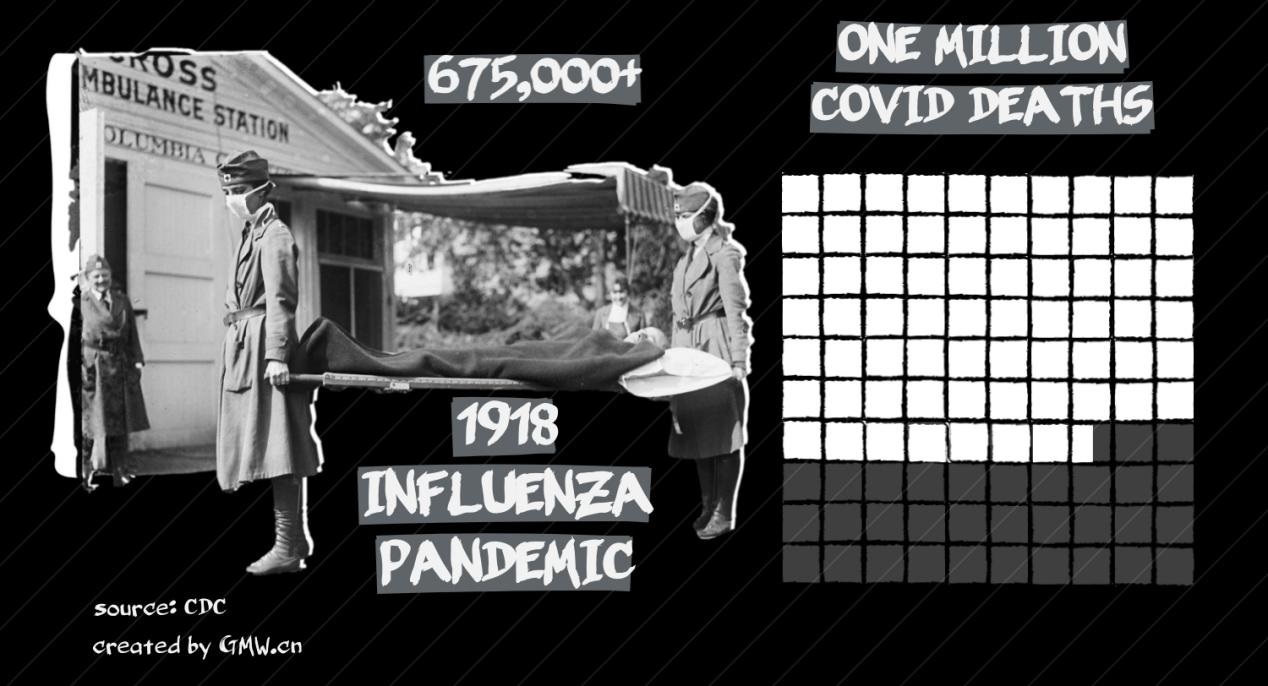
It is estimated that 675,000 Americans perished from the 1918 influenza pandemic, which ranked as the deadliest disease outbreak. With no effective flu vaccines and antibiotics treatment available, control efforts back then were limited to non-pharmaceutical measures such as "isolation, quarantine, good personal hygiene, use of disinfectants, and limitations of public gatherings”, recorded the U.S. Centers for Disease Control and Prevention (CDC).
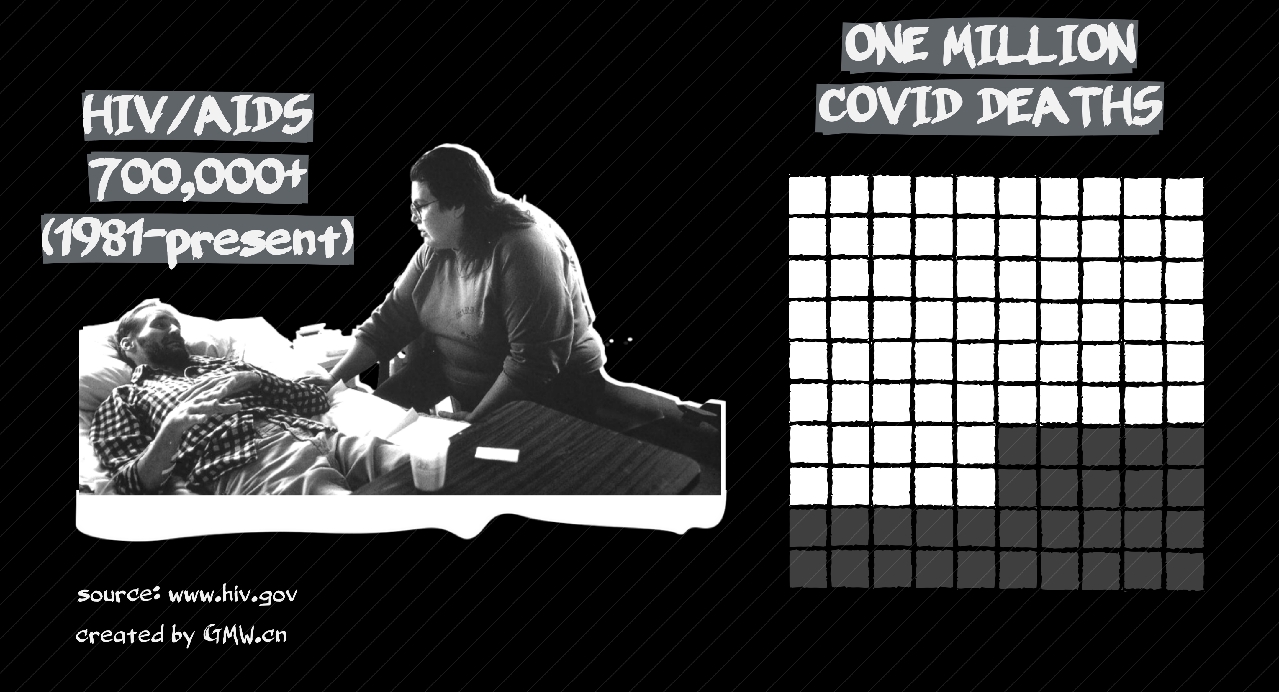
The first infections of what would later be identified as AIDS in the U.S. were reported in 1981. Over the past four decades, around 700,000 Americans have died from the virus and no cure for it has been found.
Though both belong to zoonotic viral diseases, AIDS has a far more lethal nature than COVID. A 2021 study found that over 95% of deaths would occur among AIDS infections without treatment, while the percentage for COVID only accounts for 1%-4%. Compared with its deadliest counterpart on earth, the SARS-CoV-2 virus has even killed 300,000 more Americans in a much shorter time.
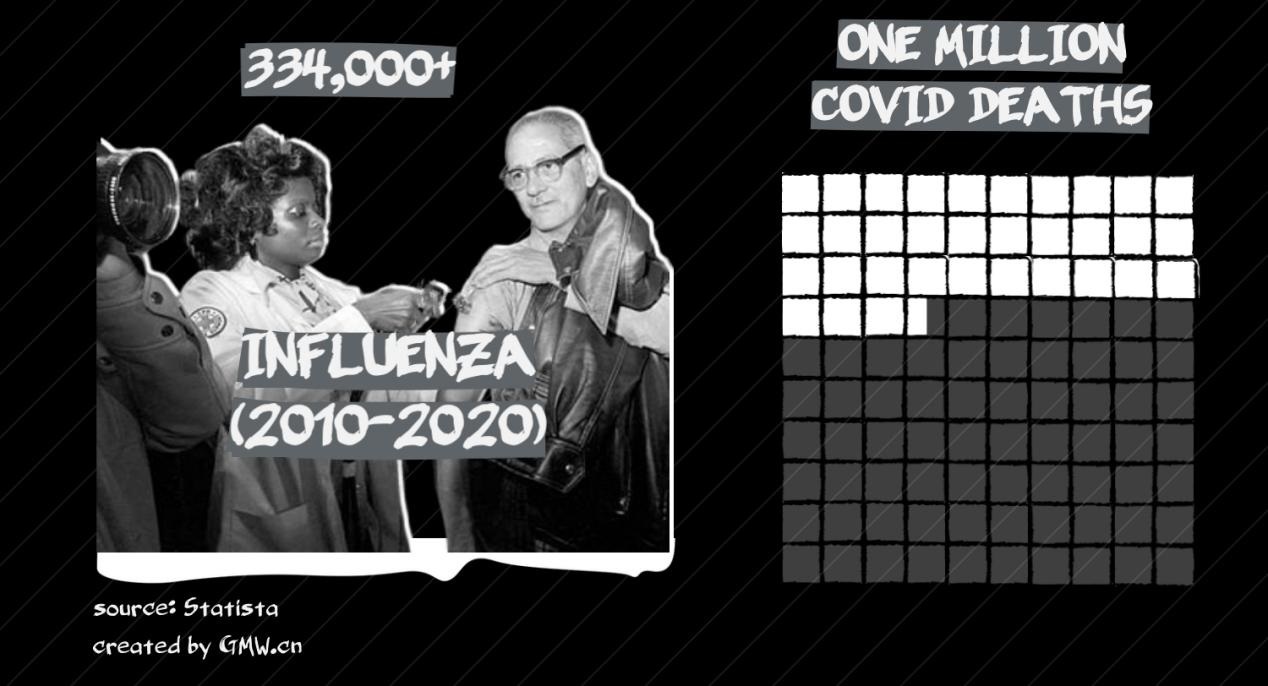
The COVID-19 came out of the blue, but epidemics and pandemics are nothing new in American history. The country has long been plagued by seasonal flu, which claimed more than 334,000 lives over the last decade prior to the COVID pandemic.
Take a closer look at the legacy left by the century-long battle against pandemics, you will find today’s wounds are more of the same.
“The deadliest pandemic did not end deadly pandemics,” wrote Anthony Fauci with two other public health experts in a paper published in the American Journal of Public Health, “A century later ... tragic pandemics are still occurring, and we are still struggling to deal with them.”
WORST ‘MAN-MADE’ DISASTER
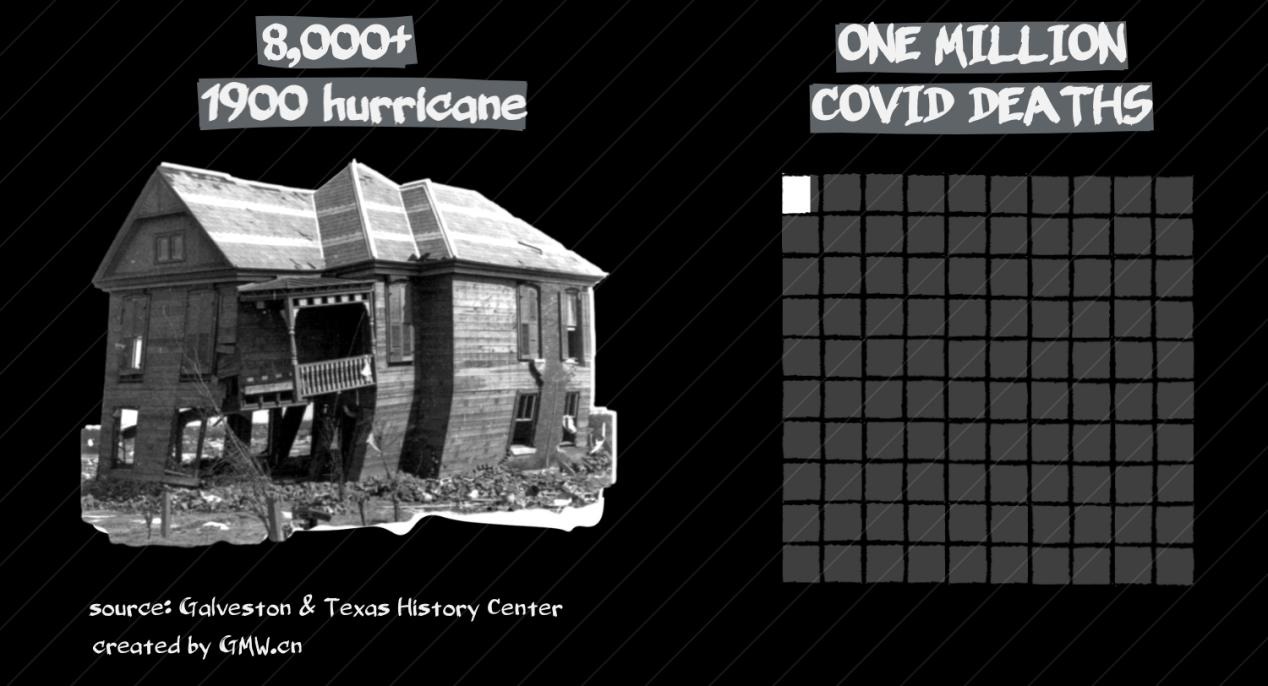
Among U.S. natural disasters, the 1900 hurricane that struck Galveston, Texas, has the highest death toll of estimated 6,000 to 8,000 deaths.
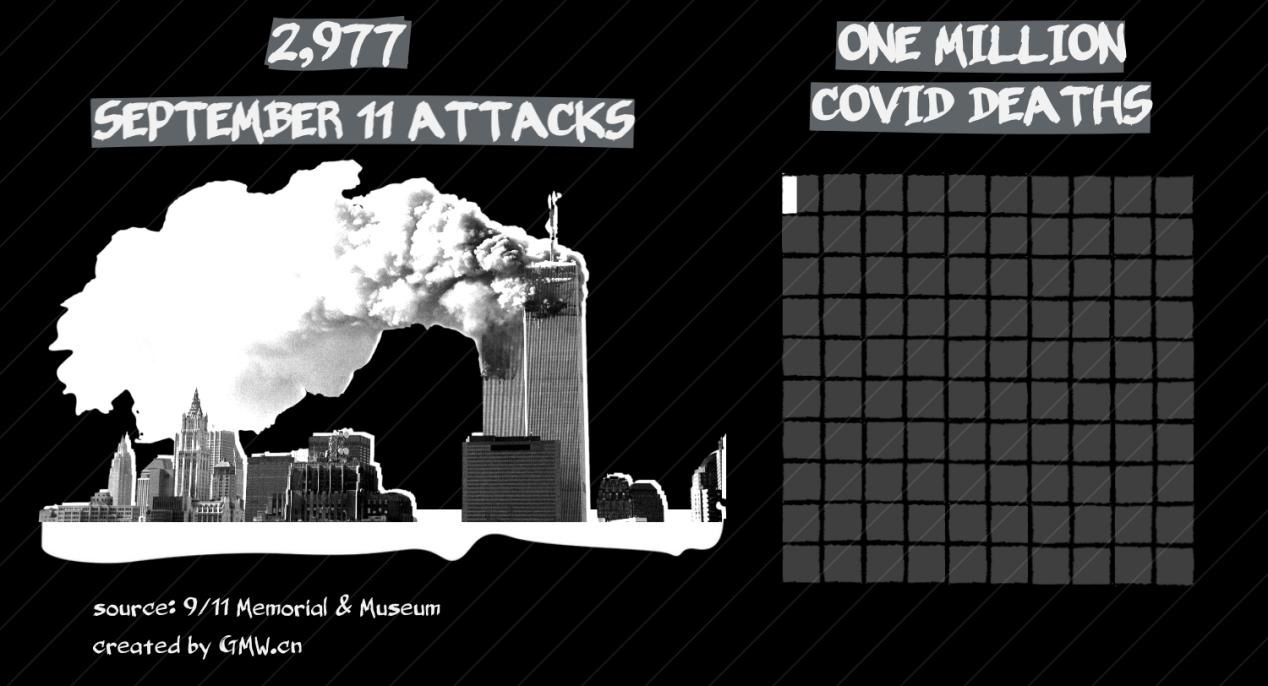
The 9/11 terrorists attacks, which led to 2,977 deaths, were America’s worst terrorist strikes. The COVID pandemic has seen lots of moments when death number surpassed that of 9/11 in a single day. The tragedy of the same size as 9/11 repeated itself for days and days, and yet elicit similar unity and determination in government response.
The latest disaster studies state that there’s actually “no such thing as a ‘natural’ disaster”. Whilst the inducing hazards may be natural and inevitable, the resulting disasters “almost always have been made by human actions and decisions”.
When observed though the lens of “no natural disasters”, one million COVID deaths is nothing short of the worst “man-made” disaster in U.S. modern history. A natural origin notwithstanding, the biological hazard ran into a far worse situation due to ignorance, inadequate response and mismanagement.
OUTLIER
According to the 2021 Global Health Security Index, the United States is the best equipped country in the world for epidemics and pandemics. Not in a good way, the U.S. also ranks first when it comes to the cumulative COVID deaths worldwide and the per capita death rate among wealthy nations.
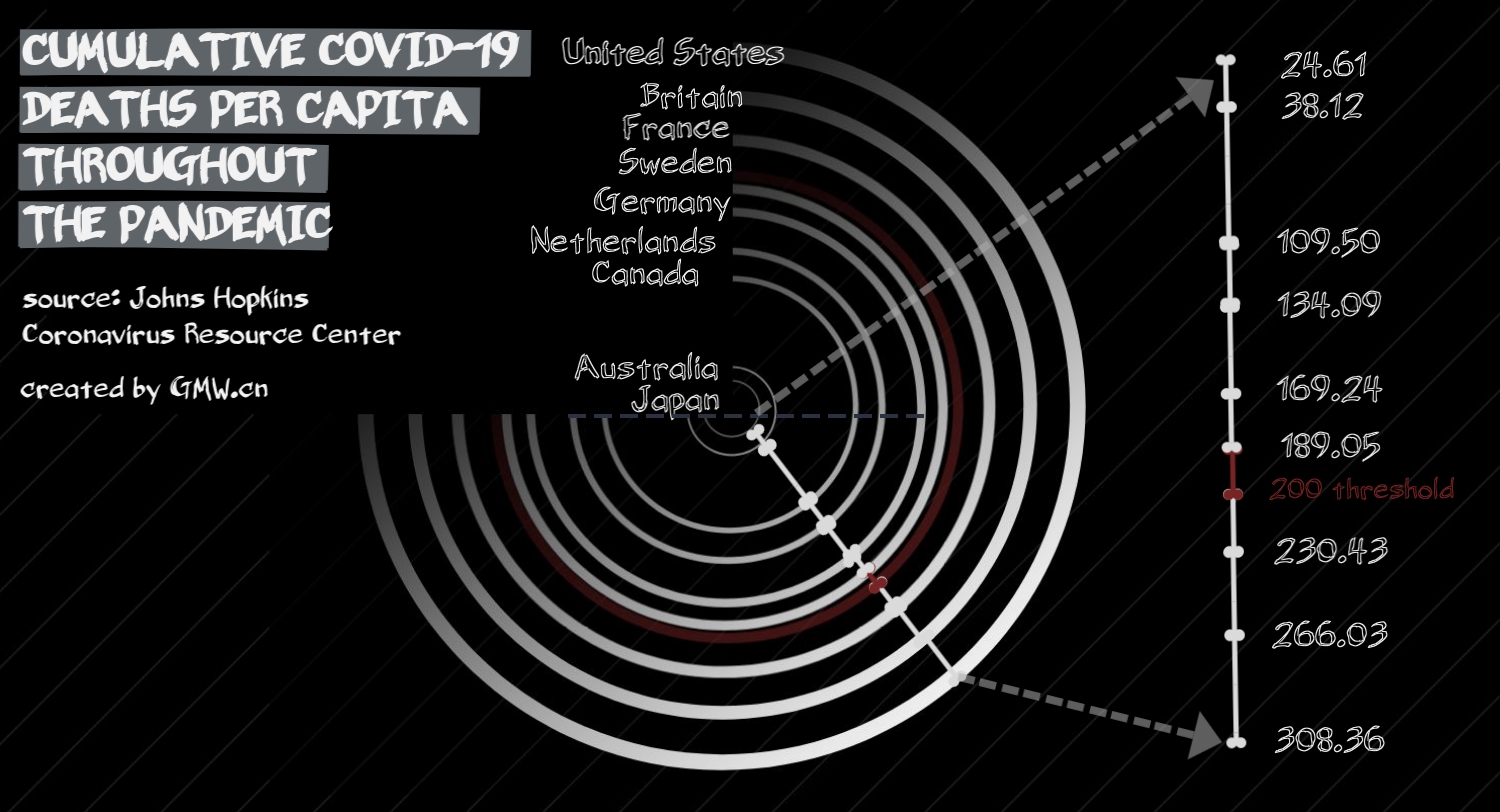
Hitting the one-millions threshold won’t put an end to the pandemic if nothing’s changed. The country is not in good shape with the most COVID deaths all over the world in the past 7 days. There are still hundreds of Americans dying from the virus every day, which might cast a shadow on the overall optimism to turn the page on the pandemic.
Make no mistake, life is precious, and of course, we have no right to weigh up tragedies by pure statistics.
Catherine Mas, a history professor at Florida International University, was cited by NPR to explain the reason why we still need to do the maths.
She believed that comparisons can be powerful to help the country envision the abstract death scale, for the number is too big to comprehend, and the crisis has “taken place out of sight for many Americans”.
Moreover, the reason at its core “is not just because the numbers are there,” said Mas, “but to acknowledge this is a significant rupture in society.”
点击右上角![]() 微信好友
微信好友
 朋友圈
朋友圈

请使用浏览器分享功能进行分享
